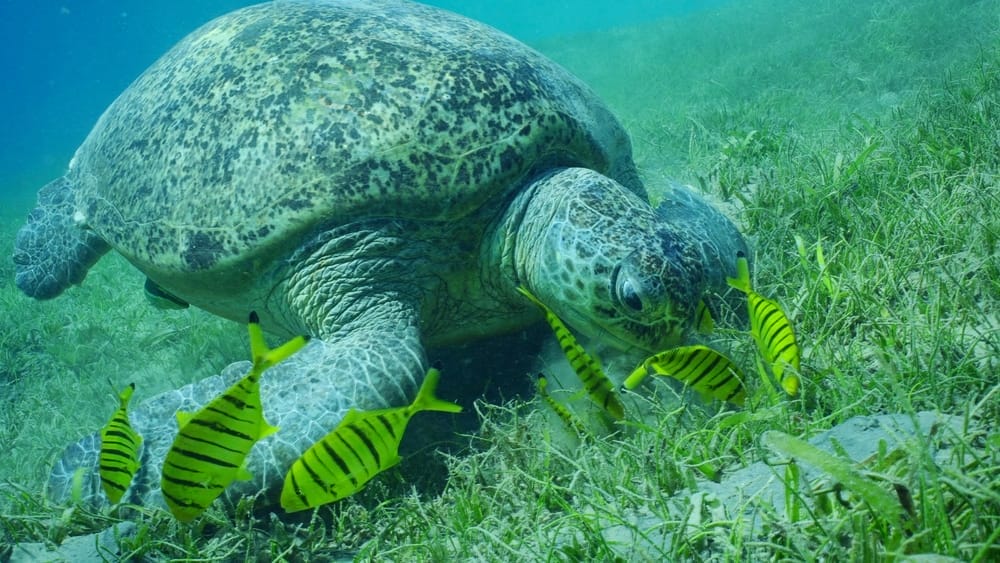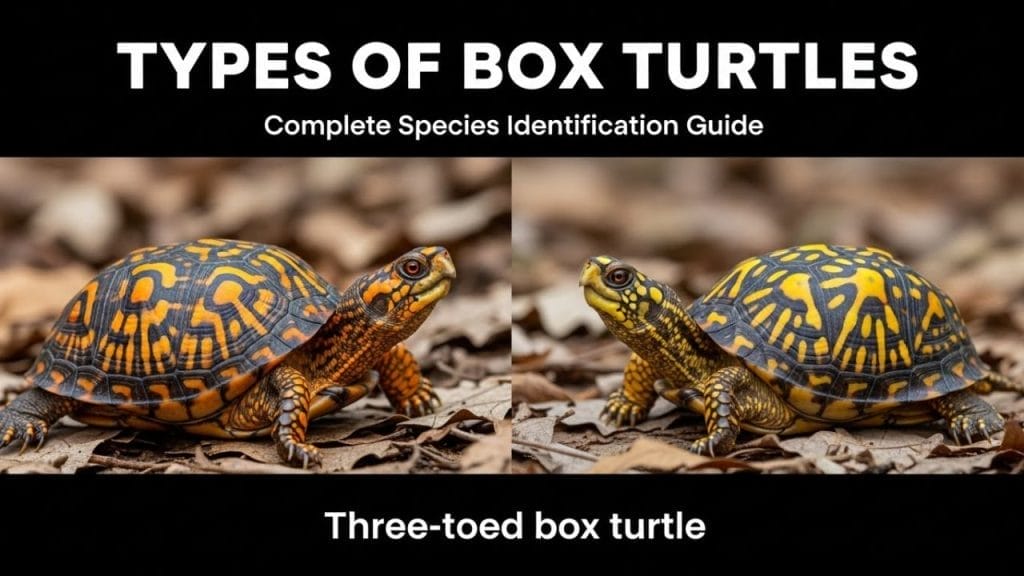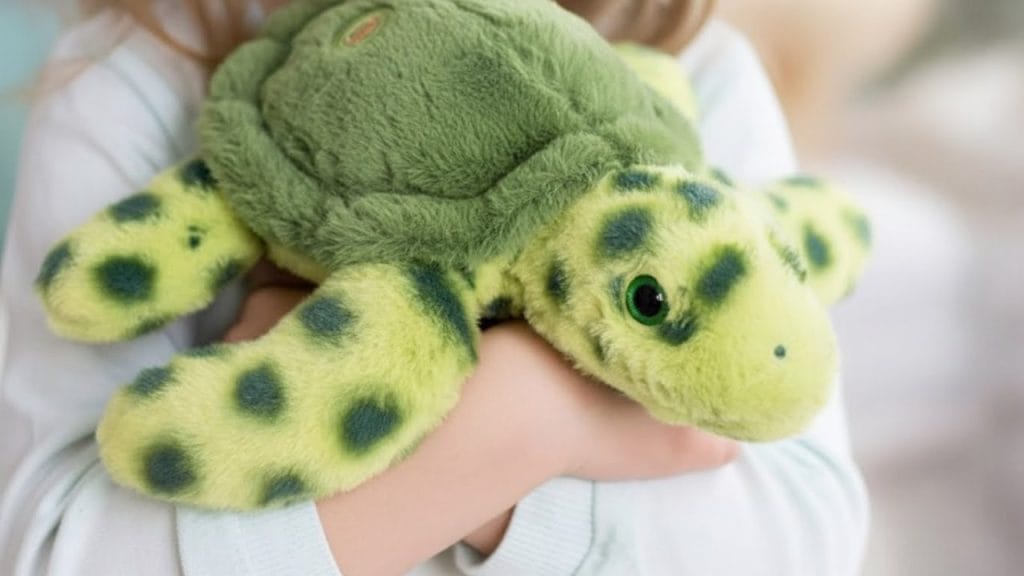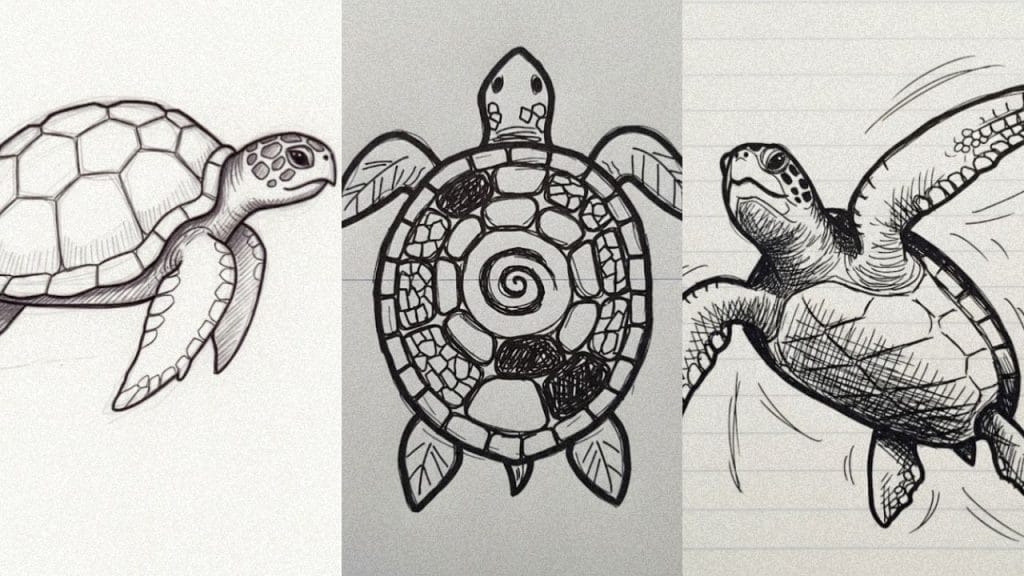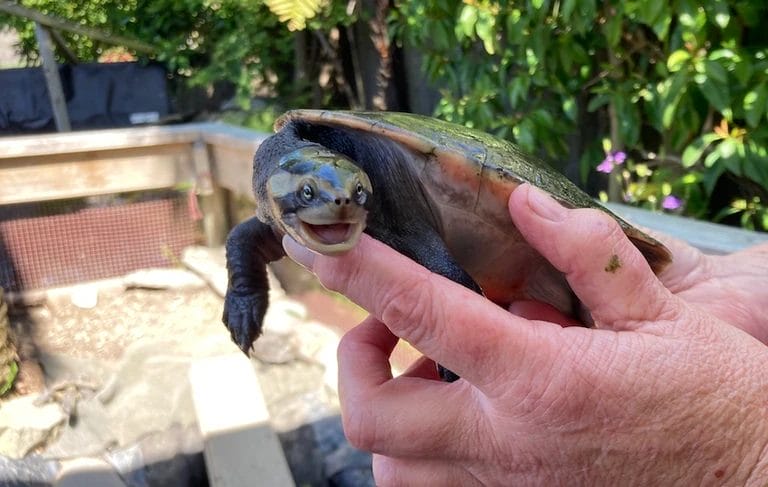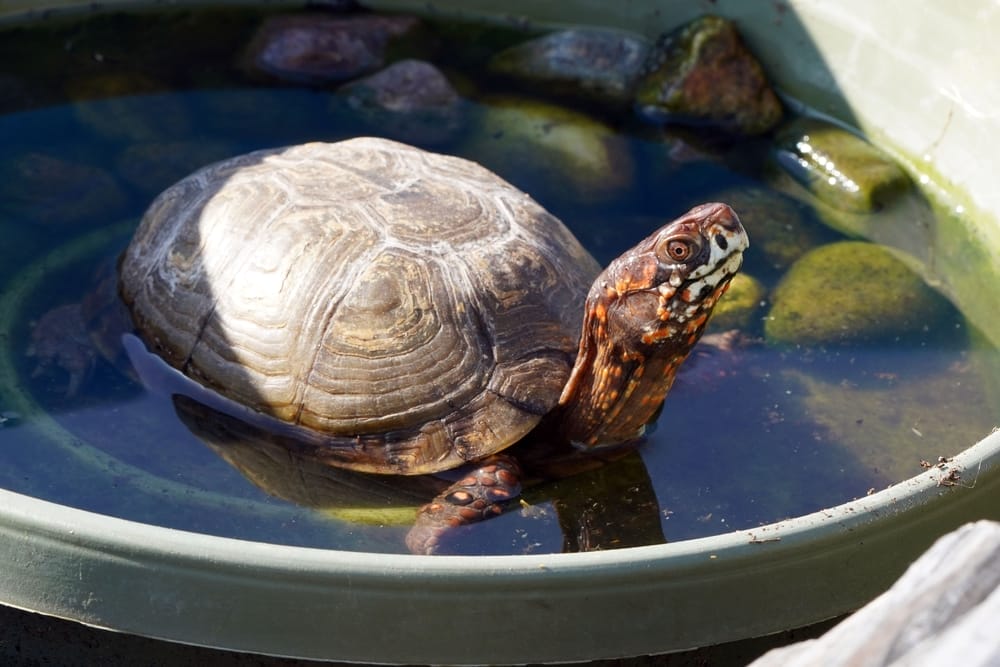Aquatic Turtle Care Sheet Infographic
Want to get a printable version of this pdf? Click here!
The infographic provides a comprehensive care sheet for aquatic turtles. Here’s a detailed explanation of the sections included:
Taking Care of a Turtle Includes Several Different Things:
Housing: It mentions that there are two types of habitats that can be built for a turtle.
Indoor Habitat:
If you’re planning to build an indoor habitat, you will need the following:
- Tank
- Basking dock
- Water filter
- Tank water heater
- Light sources & accessories
Outdoor Habitat:
Alternatively, you can use a small pond or dig a spot for your turtle’s habitat. Some other ideas include:
- Wading pool
- Larger pond with a proper filtration system
- Plastic tubs that offer both land and water areas
Habitat Environment:
- The easiest way to create a captive environment is to mimic the temperature and humidity level. Also, if you do not provide the perfect temperature to the aquatic turtles, they will suffer from various diseases.
- It shows an ideal temperature range for both air (70 to 80 degrees Fahrenheit) and water (72 to 76 degrees Fahrenheit) for the turtle habitat.
Food Items That Must Avoid Feeding:
- The list includes fruits, hairy animals, iceberg lettuce, nuts, fireflies, wild snail, dog food canned food, chemical induced food, and mice.
A Good Turtle’s Care Also Includes Breeding, Care For Its Eggs, and Hatchlings.
Food Items That You Can Feed Your Turtle:
- Protein Based Food Items: Cichlid sticks, feeder fish, feeder cricket, earthworms, krill, blood worms, ghost shrimp, snail, mollusk, prawn.
- Plant-Based Food Items: Water hyacinths, water lilies, water fern, water starwort, watermilfoil, hornwort, duckweed, waterweed, pondweed, frogbit.
pet turtle Diet:
- Juveniles mainly prefer meat-based food. With age, they gradually become omnivorous. Adults mainly prefer vegetables. But the diet should include some animal protein at all stages.
Most Common Turtle Diseases:
- The list includes shell rot, pyramiding, cracked shell, shedding, soft shell, vitamin A deficiency, respiratory illness, abscesses, internal parasite, organ failure, mouth rot, swollen eyes, lump.
Some Common Symptoms Might Help You to Tell If Your Turtle Is Sick or Not:
- Loss of appetite, nasal discharge, anxiety, weight loss.

About Author
Muntaseer Rahman started keeping pet turtles back in 2013. He also owns the largest Turtle & Tortoise Facebook community in Bangladesh. These days he is mostly active on Facebook.


